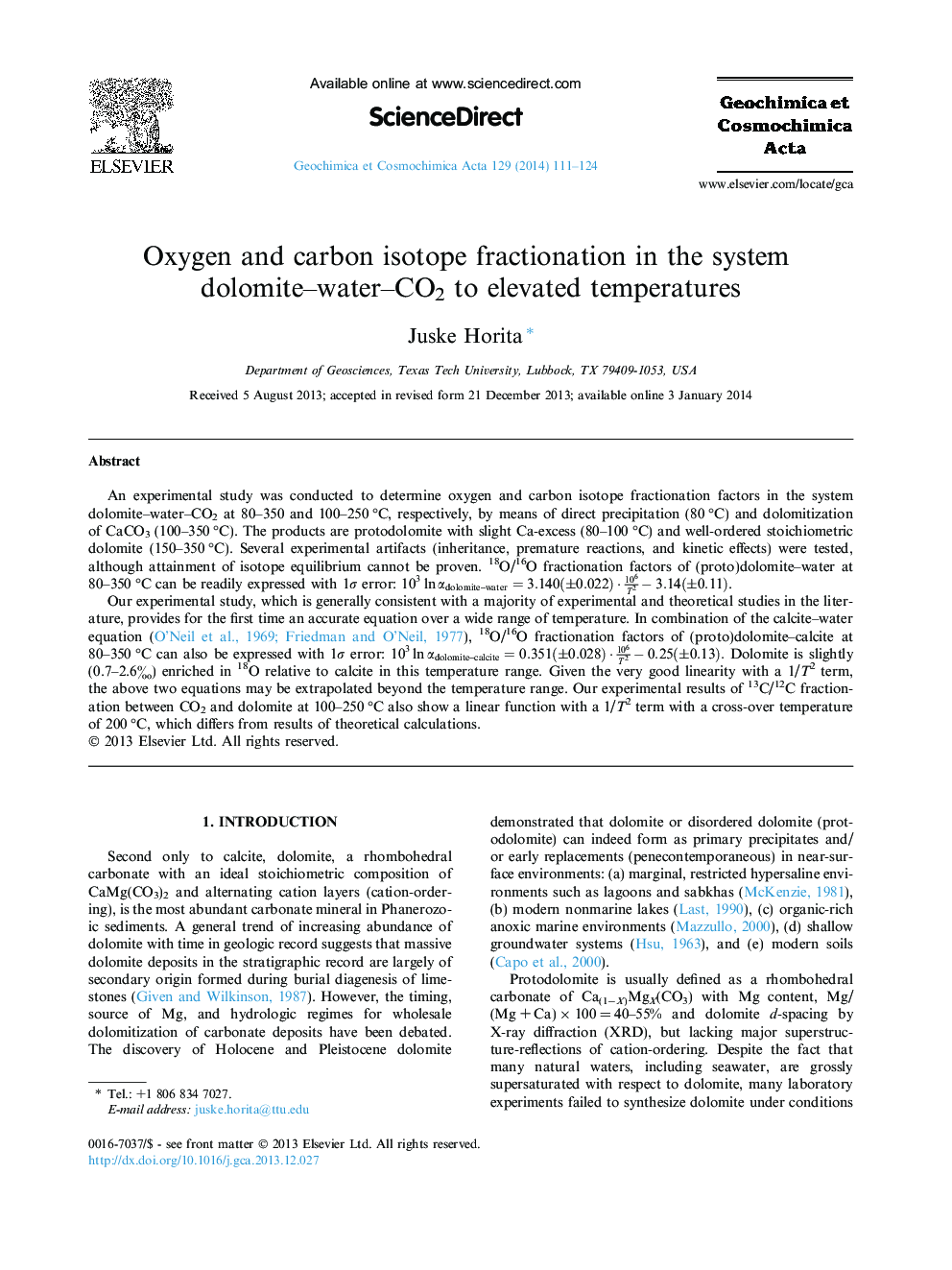| Article ID | Journal | Published Year | Pages | File Type |
|---|---|---|---|---|
| 4702124 | Geochimica et Cosmochimica Acta | 2014 | 14 Pages |
An experimental study was conducted to determine oxygen and carbon isotope fractionation factors in the system dolomite–water–CO2 at 80–350 and 100–250 °C, respectively, by means of direct precipitation (80 °C) and dolomitization of CaCO3 (100–350 °C). The products are protodolomite with slight Ca-excess (80–100 °C) and well-ordered stoichiometric dolomite (150–350 °C). Several experimental artifacts (inheritance, premature reactions, and kinetic effects) were tested, although attainment of isotope equilibrium cannot be proven. 18O/16O fractionation factors of (proto)dolomite–water at 80–350 °C can be readily expressed with 1σ error: 103lnαdolomite–water=3.140(±0.022)·106T2-3.14(±0.11).Our experimental study, which is generally consistent with a majority of experimental and theoretical studies in the literature, provides for the first time an accurate equation over a wide range of temperature. In combination of the calcite–water equation (O’Neil et al., 1969 and Friedman and O’Neil, 1977), 18O/16O fractionation factors of (proto)dolomite–calcite at 80–350 °C can also be expressed with 1σ error: 103lnαdolomite–calcite=0.351(±0.028)·106T2-0.25(±0.13). Dolomite is slightly (0.7–2.6‰) enriched in 18O relative to calcite in this temperature range. Given the very good linearity with a 1/T2 term, the above two equations may be extrapolated beyond the temperature range. Our experimental results of 13C/12C fractionation between CO2 and dolomite at 100–250 °C also show a linear function with a 1/T2 term with a cross-over temperature of 200 °C, which differs from results of theoretical calculations.
